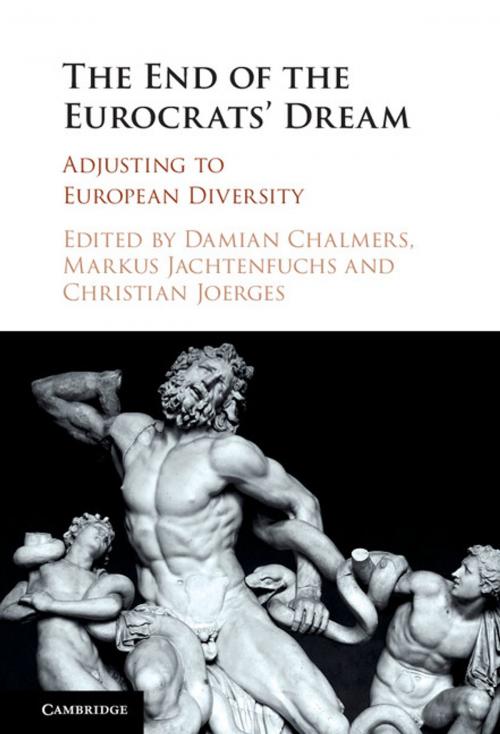The End of the Eurocrats' Dream
Adjusting to European Diversity
Nonfiction, Reference & Language, Law, International, Social & Cultural Studies, Political Science| Author: | ISBN: | 9781316598108 | |
| Publisher: | Cambridge University Press | Publication: | March 18, 2016 |
| Imprint: | Cambridge University Press | Language: | English |
| Author: | |
| ISBN: | 9781316598108 |
| Publisher: | Cambridge University Press |
| Publication: | March 18, 2016 |
| Imprint: | Cambridge University Press |
| Language: | English |
This volume argues that the crisis of the European Union is not merely a fiscal crisis but reveals and amplifies deeper flaws in the structure of the EU itself. It is a multidimensional crisis of the economic, legal and political cornerstones of European integration and marks the end of the technocratic mode of integration which has been dominant since the 1950s. The EU has a weak political and administrative centre, relies excessively on governance by law, is challenged by increasing heterogeneity and displays increasingly interlocked levels of government. During the crisis, it has become more and more asymmetrical and has intervened massively in domestic economic and legal systems. A team of economists, lawyers, philosophers and political scientists analyze these deeper dimensions of the European crisis from a broader theoretical perspective with a view towards contributing to a better understanding and shaping the trajectory of the EU.
This volume argues that the crisis of the European Union is not merely a fiscal crisis but reveals and amplifies deeper flaws in the structure of the EU itself. It is a multidimensional crisis of the economic, legal and political cornerstones of European integration and marks the end of the technocratic mode of integration which has been dominant since the 1950s. The EU has a weak political and administrative centre, relies excessively on governance by law, is challenged by increasing heterogeneity and displays increasingly interlocked levels of government. During the crisis, it has become more and more asymmetrical and has intervened massively in domestic economic and legal systems. A team of economists, lawyers, philosophers and political scientists analyze these deeper dimensions of the European crisis from a broader theoretical perspective with a view towards contributing to a better understanding and shaping the trajectory of the EU.















